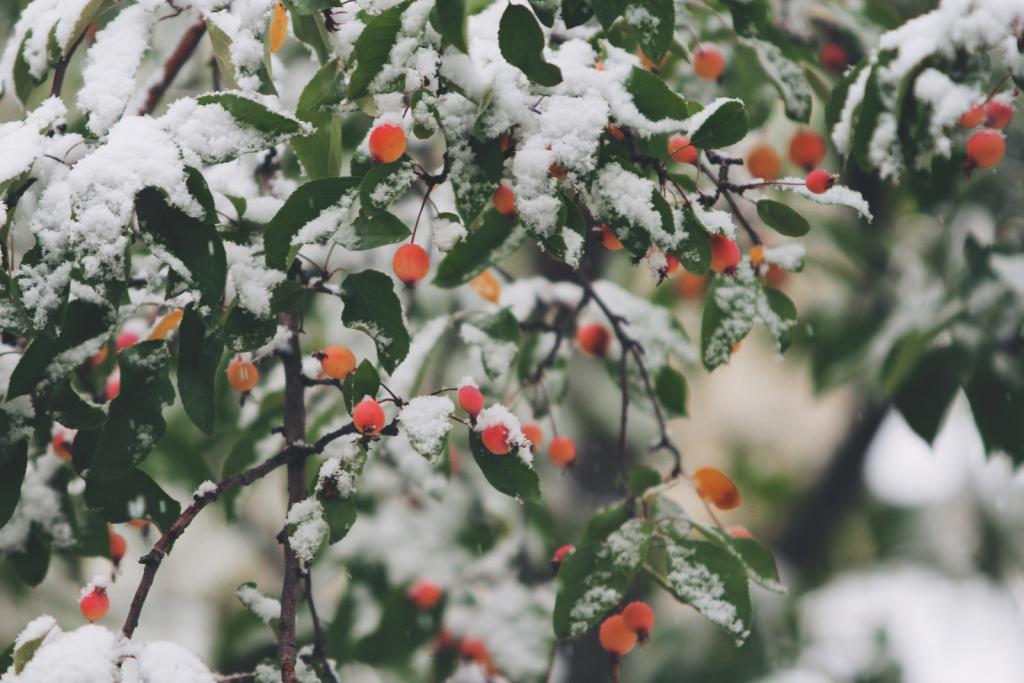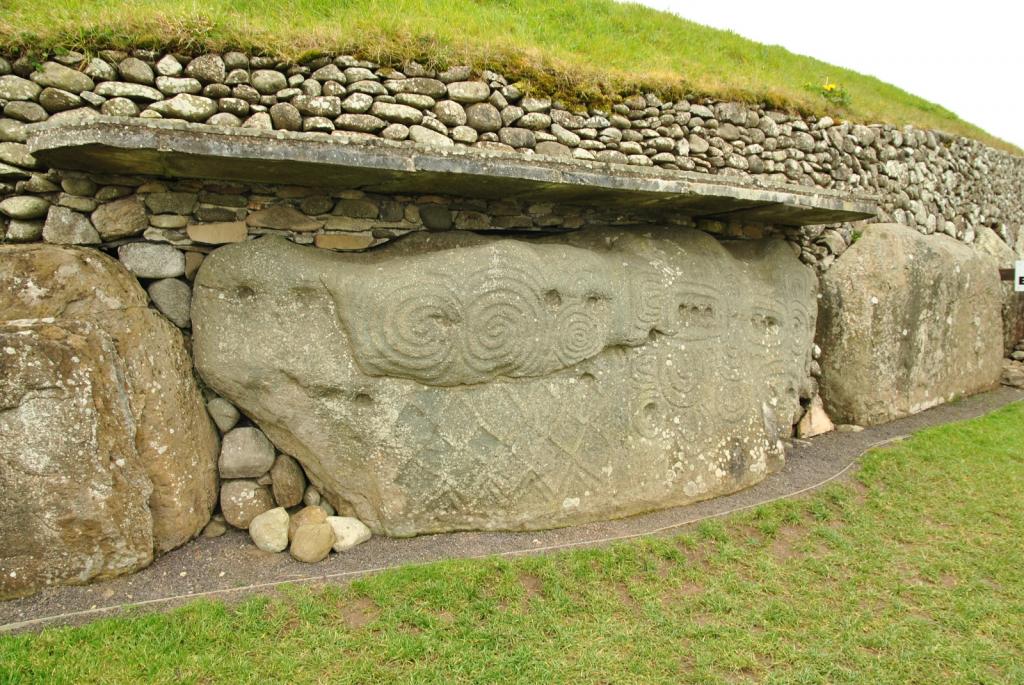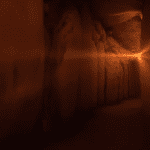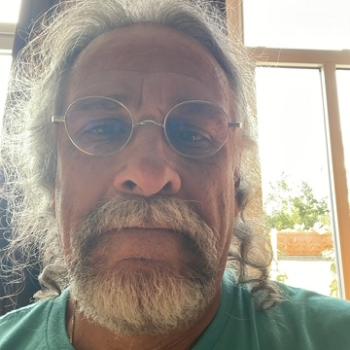This is somewhat a continuation of my previous article, in which I couldn’t include all I wanted to.
Contents
- How Aengus took the Brug
- A Solstice/Midwinter Hearth devotional
- Watching “The Event”
- Folk Magics
How Aengus took the Brugh

This is my retelling from the Tochmarc Etáin(The Wooing of Etáin) sourced from Mary Jones website.
King Dagda, Good God, called Horseman Greatfather wanted to sleep with another King’s wife Boann, a river goddess of the Boyne also called Eithne and The White Cow. Boann was wife of Elcmar, also called Nuada, and Nechtan, who was king of the Mound at Newgrange also called Brug na Boyne, the Brugh of the Boyne River. Boann wanted to yield to Dagda except she was deeply afraid of Nuada because he was very powerful. So the Dagda sent Nuada away on a Journey to Mag nInis to see Bres.
And the Dagda worked Spells on Nuada, so that for him it would always be day, and hunger and thirst would not trouble him. He sent him on long errands, and so for nine months Nuada was gone but he thought it was only one day that took place because he had said he would return home at night. In that time, the Dagda made union with Boann, and she bore him a son, Oengus Mac’ind Oc, also known as the Chosen One the Young Son, for when he was born his mother said, “Young is the son who was begotten at the break of day and born betwixt it and evening.” Boann was completely healed by the time Nuada returned unaware of what had occured.
The Dagda brought his son to be raised by Midir, who fostered 300 other noble children. Aengus was raised there until the age of nine, where he had become the leader of all the children on account of Midir’s love for him, the nobility of his heritage and how handsome he was.
Aengus got into it with another of Midir’s foster sons, Triath son of Febal, of the Fir Bolg, one of two leaders in their hurley games. Up until then, Aengus had no idea he was son of one of the Kings of the Gods, and so Triath said, “It irks me that the son of a serf should be able to speak to me.”
Triath then said, “There is nothing worse than an employee’s son whose mother and father are unknown holding speech with me.”
And Aengus went and cried to Midir, sorrowful at having been shamed, told him what had happened after he asked “What is this?”
Aengus said, “Triath has defamed me and threw it in my face that I have no mother nor father.”
“Tis false,” said Midir.
“Who is my mother, from where is my father?’
“Not hard to say. Your father is Horseman Greatfather, Eochaid Ollathair,” Midir said, “And Boann, wife of Nuada of the Brugg, is your mother. It is I that have reared you unknown to Nuada, lest it should cause him pain that you were born in his despite.”
“You come with me,” said Aengus, “That my father may acknowledge me, and that I may no longer be kept hidden away under the insults of the Fir Bolg.”
So they went to speak with the Dagda, and they came to Uisnech of Meath in the center of Ireland, where is located the Dagda’s house, in the direct center of Ireland. He was in his court with his folk when Midir took him aside.
The Dagda said, “What does he desire, this youth who has not come until now?”
“His desire is to be acknowledged by his father, and for land to be given to him,” said Midir, “for it is not meet that your son should be landless while you are King of Ireland.”
“He is Welcome,” said Eochaid, “He is my son. But the land I wish him to have is not yet vacant”
“What land is that?” asked Midir.
“The Brug, to the north of the Boyne,” said Eochaid. “Who is there?” said Midir.
“Nuada,” said Eochaid, “is the man who is there I have no wish to annoy him further.” said Dagda.
“Pray, what counsel dost thou give this lad?” siad Midir.
“I have this for him,” said Eochaid. “On the day of Samhain let him go into the Brugh, and let him go armed. That is a day of peace and amity among the gods of Ireland, on which none is at enmity with his fellow. And Nuada will be in Cnoc Side in Borga unarmed save for a fork of white hazel in his hand, his cloak folded around him and a gold brooch in his cloak, and three fifties playing before him in the playing-field and let Aengus og to him and threaten to kill him. But it is good that he slay him not, provided he promise him his will. And let this be the will of Aengus, that he be king for the day and night in the Brug; and see that you not yield the land to Nuada till he submit himself to my decision; and when he comes, let Aengus plea be that the land as fallen to him, and that he in fee simple for sparing, Nuada and not slaying him, and that what he had asked for his kingship of day and night, and,” said he, “it is in days and nights that the world is spent.”
Midir went home and Aengus along with him. On the very next Samhain, Aengus having armed himself, came into the Brug and cornered Nuada at sword point and axe blade, so that he promised him in return for his life, kingship of day and night over this land. The Mac Oc took up residence immediately as king of the land, Nuada’s household being subject to his will. The next day, Nuada came to claim his kingship back from the Mac Oc, and threatened him mightily in doing so. The Mac Oc refused to yield the land and suggested that the decision be put in front of the Judgement of the Dagda in the presence of the mend of Ireland.
They appeal to the Dagda, who judged each man’s binding by his oath.
“So then this land accordingly belongs henceforth to this youth,” said Nuada.
“It is fitting,” said the Dagda, “You were taken unaware on a day of peace and amity. You gave your land for mercy show to you, for your life was dearer to you than your land, yet you shall have land from me that will be no less profitable to you than the Brug.”
“Where is that?” said Nuada.
“Cleitech,” said the Dagda, “with the three lands that are round about it, your youths playing before you every day in the Brug and you shall enjoy the fruits of the Boyne for this land.”
“It is well,” said Nuada; “so shall it be accomplished.”
And he went to Cleitech and built a fortress there, and the Mac Oc abode in the Brug in his land.
A Solstice/Midwinter Solitary Irish Polytheist Hearth Devotional
What you need:
- Offering for the Land Goddess
- Offering for the Gatekeeper
- Offerings for personal deities and ancestors
- Offerings for Aengus Mac Oc
- Whiskey/Mead/Cider
(You can combine these,
a bottle of whisky can cover all of them)
- Bowl
- Quaich, Cup or Drinking Horn
- Hearth
- Well, Cauldron, or Water Vessel
- Pillar, Staff, Wand, or Tree
- Whatever you need for magics (see very bottom)
Initiating the Rite
Let 3 tones ring out from your instrument, horn, bell, chime, or whatever.
Light some juniper sprigs and suffumigate the space and yourself with its smoke to please the spirits and set the space apart. Open with a Prayer. If you don’t have one, use this:
The Land upholds us,
The Seas surrounds us,
And the Sky embraces us,
While we stand at the Center,
As Living Flames, and we pray,
That our Rite be done in Beauty and Truth!
Bíodh sé amhlaidh! (Bee-oh shay owl-ee)
2. Honor the Land
Honor the land that you dwell in by making offerings. Use the Earth Mother if you don’t have any kind of deity that represents the local lore, like we in Texas have the Corn Mother, Our Friend Tejas, her older name is Tesha, or the Irish have in their three Land goddesses: Eriu, Fodla or Banba.
Pour some oats or grain into a main bowl to the Earth Mother saying:
Oh beloved Mother of all, I honor you, please accept my offering.
3. State Your Purpose
Be you Druid, Poet or Seer. Be you Smith, Conjurer, or Healer. Be you Battle Witch, Fate Weaver, or Crop Wizard, what we do is a verbal art. Say your intentions.
Are you here to honor the observance of the seasons, are you here for magic?
Are you here because you want to connect to paganism, this is your attempt and you feel silly? Please comment any intentions you may have in the comments section below.
I am here to worship Aengus. I am here to observe his conception in a day. I am here to honor the changing of the seasons. And, finally, I am here to stir the cosmos to my will!
Say it firm enough to the earth in your mind trembles. Say it like Paul Muadib would from Dune.
4. Recreate the World
One major part of Indo-European rites and sacrifices is the reaffirmation of the cosmos through sacrifice. And so we orient ourselves, and the connection points in our nemeton, to the mythological sacred center. In our flavor of Indo-European paganism, that is either our local Sovereignty Hill, or the one at Tara in Ireland, upon which stood a Bíle, a great and sacred tree, once upon a time. We already started this step in our opening prayer by reaffirming a triple cosmos. In Celtic paganism, that’s Land, Sky and Sea.
Light the Hearth saying:
Sacred Fire, Burn within me!
Fill the Well saying:
Sacred Well, Flow within me!
Purify the Tree or Pillar saying:
Sacred Tree, Grow within me!
5. Pierce the Veil
Manannán as Psychopomp
Here, I’ve provided two different type of psychopomps. One is the fire herself, and the other is Lord of thresholds and divider of the lands belonging to the Tuatha Dé, and therefore chooser of positions of the crossroads.
A Manannán*, a thiarna ár ngeataí, siúlann muid ar do bhealach.
(uh Mana-NAWN, ah HERE-nuh awr NGAT-ee, SHOO-lun mwij air duh VA-lukh)O Manannán, O lord of our gates, we walk on your path.
Make Offerings to Manannán.
Bríd as Psychopomp
I personally do not call to Manannán, its just my preference. Is mise an mogh ar Bríd(I am the servant of Brighid), and so Bríghid is the keeper of our thresholds, over the fire in the forge, and the quench well. She is the keeper of Druidic fires and the watcher over Holy Wells.
A Bhrighid, a bhandia ár ngeataí, siúlann muid ar do bhealach.
(uh vreej, ah WAN-jee-uh awr NGAT-ee, SHOO-lun mwij air duh VA-lukh)O Bríd, goddess of our gates, we walk on your path.
Make Offerings to Bríd.
6. Convoke the Gods, Ancestors and Sí Folk
In Indo-European pagan studies, when we don’t invoke or evoke the gods, we convoke the gods into an assembly. That assembly takes place across multiple worlds and realms. We establish our hearth fire as the local version of the cosmological sacred center, Tara. We then open the ways, thusly pinching the worlds together, and so our fire and well become passage ways to the fires and wells of the Gods, the Ancestors and the Sí folk.
Noble Spirits, Honored Dead, Shining Gods, we call to you as our Kin, meet us at the boundary!
Now call upon your personal deities and ancestors in a heartfelt way saying whatever comes to mind, make offerings to them.
I also call the main gods of the tripartite ideologie in this order:
- Ogma (Champion of the Gods first)
- Airmed & Miach (Third functional Gods of nourishment and healing)
- Lugh (2nd functional heroic god)
- Nuada (Sovereign King of Law)
- Dagda (Sovereign King of Magic and Religion)
- Brid or Manannán or Morrigan (to deliver the sacrifices to the Otherworld)
7. Devotional Sacrifice
Praise Poetry
This is the main part of the rite. Here we commune with the Gods we’ve called, and the deity prominent for the occasion.
Say any praise poetry to any of the Gods now. Especially to those you work with, are in clientage with, or are devoted too.
Deity of the Occaision
Light a candle in the dark, read the Aengus prayer below, tell the tale of Aengus taking the Brug, and make offerings to him. This ritual is following the Candle Ritual motif in my previous solstice article.
Prayer of Sacrifice
If you make bargains with him, keep your end at all costs. Don’t make any oaths to gods you can’t keep. I keep mine at a minimum and grow my obligations slowly.
Pray to Aengus in a heartfelt manner. If you ask for anything, make sure you’ve offer something in return, praise works for basic things, however deeper relationships require more complex offerings.
Afterward say:
Aengus, handsome and fair, like a swan cresting the air, please accept my Sacrifice!
8. Take Omen
Pull Runes, Cards, or Ogham in order to discern if your sacrifices have been accepted, and if the terms of any bargains have been accepted. If they aren’t give more offerings and draw again. Three negative omens is signal to shut down and do your right at a more auspicious time.
9. Calling, Hallowing and Affirmation of the Blessing
Hold up your horn or cup saying:
Gods, Dead, and Sí, give the waters to me!
Pour the mead, whiskey, or cider:
May the blessings of the gods and ancestors be upon this cup!
Hold up the waters and drink after saying:
Behold the Waters of Life!
10. Magic
Focus and meditate on feeling the power and blessing of the gods flow through you after you drink the cup.
With that power, perform any of the spells you need to, we’ve provided some good examples below in this article.
11. Closing the Rite
Thank the beings in reverse order, in our case Aengus, Patrons & Devotees, Personal Gods and Ancestors, Bríd, Dagda, Nuada, Lugh, Airmed & Miach, Ogma, and finally the Land Goddess.
Ask the Gatekeeper to close the ways saying:
By Fire, Well, and Tree, let the ways be closed bíodh sé amhlaidh(Bee-uh shay owl-lee)!
The rite has ended, go about your day 🙂
Prayers & Chants
Aengus Mac in’d Oc
This is adapted from charm #6 from the Carmina Gadelica Vol 1.
Aengus, you son of Boann,
Have love upon us,
Bíodh sé amhlaidh!Aengus, you son of Boann,
Lay peace upon us,
Bíodh sé amhlaidh!Oh, with us and for us,
Where we shall longest be,
Bíodh sé amhlaidh!Be about the morning of our course,
Be about the closing of our life.
Bíodh sé amhlaidh!Be at the dawning of the winter,
And Oh! at the darkening of the Day,
Bíodh sé amhlaidh!Be for us and with us,
Young Son of the Brug,Consecrate us, condition and lot,
You King of Spring,
You Champion over Winter,
Bíodh sé amhlaidh!Consecrate us, rights and means,
O King of Spring,
O Champion over Winter,
Bíodh sé amhlaidh!Consecrate us, heart and body,
O King of spring,
O Champion over Winter,
Bíodh sé amhlaidh!Each Heart and Body,
One day you were made,
One sun accordingly,
O King of spring,
O Champion over Winter,
Bíodh sé amhlaidh!
Ollathair na Gloir(Greatfather of Glory)
This is adapted from charm #7 in the Carmina Gadelica Vol 1.
Thanks be to you, Great Father,
Father kind, ever-loving, ever-powerful,
For the abundance, favor and deliverance,
That you bestow upon us in our need.
Whatever fate befalls us your children,
In our portion, in our lot, in our path,
Give to us the rich gifts of your hand,
And the joyous blessings of your mouth.
Watching “The Event”

Watch the live stream at Newgrange for the Solstice on Dec 20th or 21st (depending on your time zone).
Here is the youtube channel hosting the stream. Subscribe to get a notification.
https://www.youtube.com/irelandsancienteast
Folk Magic Examples
Spell Against Seasonal Sickness
You need a fire or candle and seeds or a pinecone only. Imagine repelling all fever based illnesses back into the fire while throwing seeds into it saying:
As if from this fire, that burns and flashes, fevers come. Let the fevers then, too, as a babbling drunkard, pass away! Let him, the impious one, search out some deserving person, not ourselves! Reverence be to the fever of the burning weapon! Reverence be to the gods, to the fever, reverence to the luminous king Nuada! Reverence to heaven, reverence to earth, reverence to the plants! Reverence to Airmed and Miach! To you out there, that come to burn through, and turn all bodies yellow, to the red, to the brown, to the fever produced by the forest, do I render respect.
Spell for Protection
Place a piece of Iron in your well, pour some of the blessing mead or whiskey into the well, place a hot coal in the water saying the following charm as it sizzles:
O [Personal Deity/Deity of the Occaision] Tend You to the cot and the fold,
Sain us beneath Your own glorious mantle;
Your Shield of protection, guard us for ever.
Spell for Good Luck
Bless with oil a coin saying:
The successful, victorious, skilfull Lugh, He who makes the winnings in all games, do I call here.
The skilfully gaming Lugh who sweeps and heaps up, the one of the long arm, do I call here.
May he, who dances about all arts, give me his luck and skill!
When you need to turn your luck in a pinch, flip it.
















